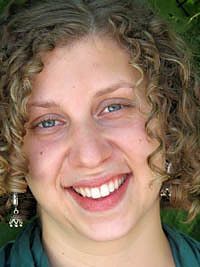In Parashat Eikev, Moses reflects on the journey through the wilderness and prepares the Israelites for their transition into a new life of responsibility in the Promised Land. He begins, “And it will be, because you will heed these ordinances and keep them and perform, that the Lord, your God, will keep for you the covenant and the kindness that God swore to your ancestors.”[1] The Hebrew word used for “heed” is the parashah’s namesake, “eikev,” which also means “heel.” A midrash proposes that the use of this word conveys a double-meaning:
“The verse shows us that even those righteous deeds which a person takes lightly, like things of no value trodden underfoot, these commandments too should be kept. One should not weigh the commandments and say: “This is an important commandment and I will fulfill it, and this is a small one and I will ignore it.”[2]
Arguing against the very human impulse to develop a hierarchy of responsibilities, this midrash warns us not to assign relative importance to the range of obligations that demand our attention and response.
This desire to prioritize feels especially familiar when we face the enormity of social justice work. We experience the frustrating gap between the resources of an individual or organization and the overwhelming amount of suffering in the world, and so we create our own idiosyncratic systems to somehow make the impossible decisions about how to allocate our limited resources. We establish systems of triage based on who we feel is “hungriest,” “sickest” or “most lacking in educational opportunity.” Or perhaps our attention is due to a special relationship to an issue: we know someone affected by the HIV/AIDS pandemic or we have seen first-hand the devastation wrought by a hurricane. We decide which issues are “our” issues, deserving of our attention, and we ignore others.
The midrash seems to imply that it is hubristic to make such judgments about relative value. Who am I to say that grassroots organizations providing vocational work for rural women are any less important than clinics treating malaria? Especially in the context of global justice, when human lives are at stake, asserting that one issue is more important than another feels especially arrogant.
By cautioning us not to presume that we understand the value of any individual mitzvah, the midrash encourages us to accept a holistic system of halachah and not a set of individual laws. If we resist the instinct to compartmentalize, categorize and organize all the mitzvot, we find that they function in complementary ways, working together to enable lives with infinite potential for holiness, meaning and justice.
We can draw inspiration from the holistic ideal of halachah in our work for global justice. Instead of approaching each issue separately, we should explore the ways in which injustices are interconnected and mutually reinforcing. For example, the HIV/AIDS pandemic is not an isolated problem of people dying from a disease. The spread of HIV is exacerbated by the social stigma that accompanies it, which prevents governments from taking timely action and deters individuals from undergoing testing. Pervasive lack of access to healthcare and prevention methods among marginalized populations further contribute to the spread of the disease. HIV/AIDS is also intrinsically linked to poverty: families get poorer when wage earners sicken, and economic growth slows in many countries as workforces are decimated by the disease. So too in the education system: the loss of teachers to HIV/AIDS results in lower academic achievement levels, higher drop-out rates and lower child literacy rates.
Responding to such an interconnected problem requires a holistic approach, not the selection of some factors over others. Responding effectively to HIV/AIDS requires improving roads and other forms of infrastructure in rural communities so that people can safely travel to clinics. It involves training health workers to teach communities how to prevent HIV transmission, reducing gender-based violence and challenging the stigma that surrounds the disease. Peter Piot, former Executive Director of UNAIDS, the United Nations Program on HIV/AIDS, articulates the necessity of understanding the HIV/AIDS pandemic in its larger context: “It is patently clear that we need to make real headway against the fundamental drivers of this epidemic, especially gender inequality, stigma and discrimination, deprivation and the failure to protect and realize human rights. This challenge is perhaps the greatest of all those facing the AIDS response.”[3]
Later in Parashat Eikev, Moses again reminds the Israelites of the importance of keeping the commandments: “You shall faithfully observe all the commandment [mitzvah, singular] that I enjoin upon you today, that you may thrive…”[4] The 18th-century Italian commentator Ohr Hachaim explains this curious use of the singular: “Moses admonishes the people and uses the singular “mitzvah” as if to say that our relationship to all of the rules in the Torah should be as if to one single commandment.”[5] This conflation of the laws should serve as a lesson to us in our pursuit of global justice, reminding us to contextualize individual issues and seek solutions that account for interlocking systems. Through this approach, let us merit Moses’s blessing that we, and all of humanity, may thrive.
[1] Deuteronomy 7:12
[2] Ashkenazi, Jacob Ben Isaac. The Weekly Midrash / Tz’enah ur’enah: the classic anthology of Torah lore and Midrashic commentary. Miriam Stark Zakon, translator. Brooklyn: Mesorah Publications, 1983.
[3] “Drivers of the Epidemic.” UNAIDS.
[4] Deuteronomy 8:1.
[5] Ohr Hachaim on Deuteronomy 8:1.

